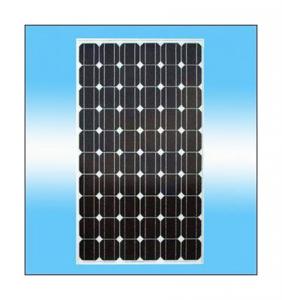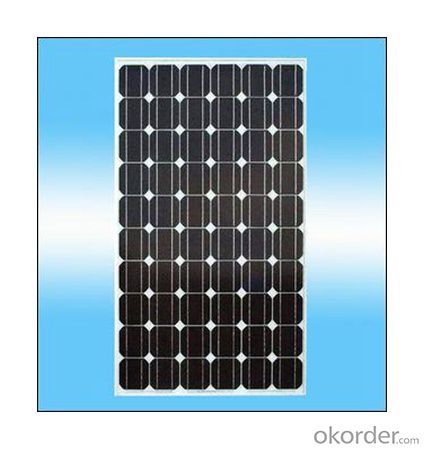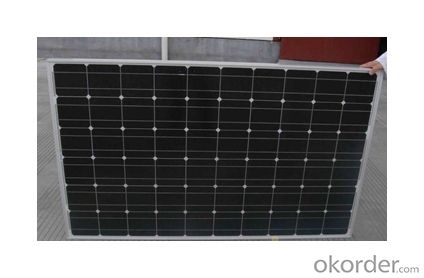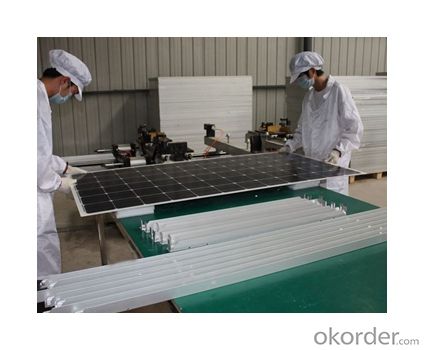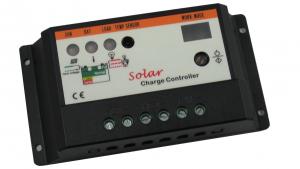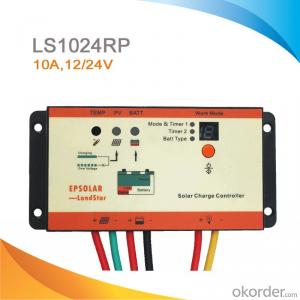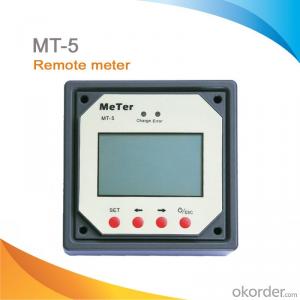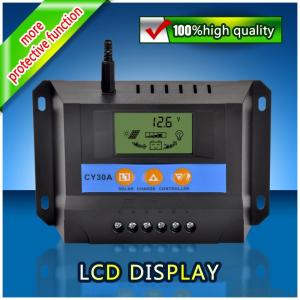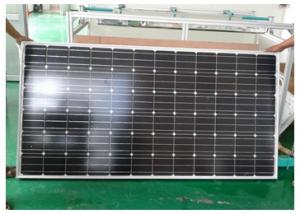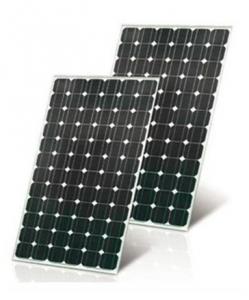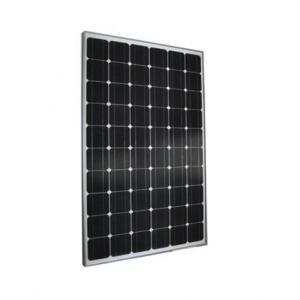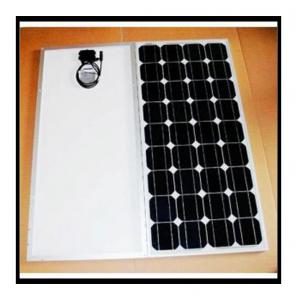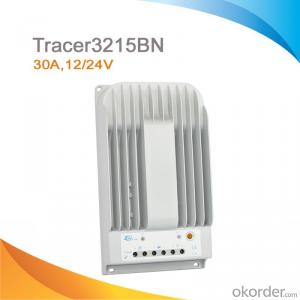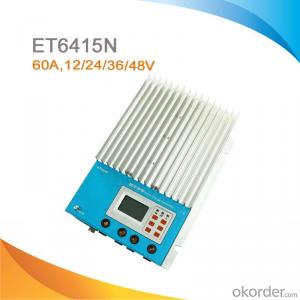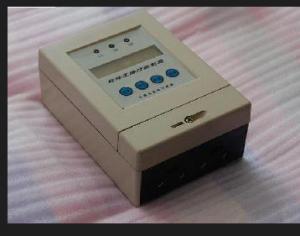Solar Controllers Wholesale:Mono-Crystalline 125*125 255W Solar Modules
OKorder Service Pledge
OKorder Financial Service
You Might Also Like
A solar panel, or photovoltaic PV module, is a device that is composed of solar cells and which, when struck by photons of light from the sun, generates an electrical current which can then be used to power DC or AC electrical loads.
We are one of the well known manufacturers and suppliers of an extensive range of solar module. Entire range of our products is well checked before offering to the clients to ensure that our products are free from any defect. Our products are delivered within the stipulated time frame. These solar module are available for outdoor applications. Our solar module are designed as per the set industry standards and can be bought at market leading Available with us in various dimensions, these modules are stringently tested under define parameters before the final dispatch by our professional who hold rich industry experience in this domain.
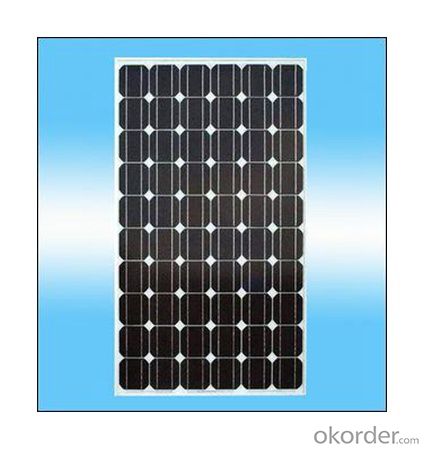
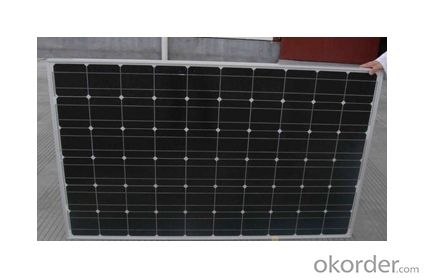
Electrical Characteristics
Max-pow (W) | 255 |
Max-Power Voltage (V) | 51.5 |
Max-Power Current (A) | 4.96 |
Open-Circuit Voltage (V) | 62.3 |
Short-Circuit Current (A) | 5.45 |
Mechanical Characteristics
Cable type, Diameter and Length | 4mm2, TUV certified, 1000mm |
Type of Connector | Compatible with MC4 plug |
Arrangement of cells | 6*12 |
Cell Size | 156*156 |
Dimension | 1580*1069*45 |
Weight | 20.5Kg |
Glass, Type and Thickness | High Transmission, Low Iron, Tempered Glass 3.2mm |
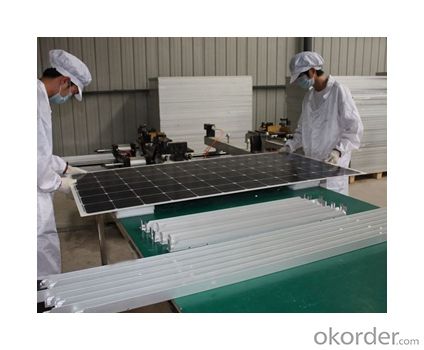
Features
Guaranteed positive tolerance 0/+5w ensures power output reliability
Strong aluminum frames module can bear snow loads up to 5400Pa and wind loads up to 2400Pa.
Excellent performance under low light environments (mornings evenings and cloudy days)
12 years for product defects in materials and workmanship and 25 years for 80% of warranted minimum power.
Certifications and standards: IEC 61215.
Manufactured according to International Quality and Environment Management System (ISO9001, ISO14100).
FAQ
Q: When do I need a charge controller and why?
The safest way to figure out if you need a charge controller is to take Battery Amp Hour Capacity and divide this by the Solar Panel max. power amp rating. If the quotient is above 200, you don't need a controller. If the number is less than 200 than you need a controller.
For example if you have a 100 amp hour battery and a 10 watt panel, you take 100 and divide it by .6 (600mA) and you get 166.6. Since this is less than 200 you need a charge controller. If you have a five-watt panel in the above example you take 100 divided by .3 (300mA) and you come up with 333.3. Since this is larger than 200 you do not need a charge controller. However you still need a blocking diode, to prevent the battery from discharging to the panel at night. So as a general rule of thumb you don't need a charge controller unless you have more than five watts of solar for every 100-amp hours of battery capacity.
Q: What is PV & how does it work?
PV stands for photovoltaic. Photo = Light and Voltaic = Electricity. A solar cell converts light to electricity.
A solar cell is made of silicon. Computer chips are made of this same material. Basically, when light strikes the surface of a solar cell some of it is absorbed into the silicon. This light energy bumps the electrons loose and causes energy to flow.
By packaging approximately 36 solar cells together a solar panel or a solar module is created. When you have more then one solar panels you create a solar array.
- Q: How does a solar controller handle the protection against short circuits?
- A solar controller handles protection against short circuits by monitoring the current flow from the solar panels. If a short circuit occurs, the controller will detect the sudden increase in current and immediately shut off the circuit to prevent any damage to the panels or other connected devices. This is done through the use of built-in circuitry or fuses that can quickly interrupt the flow of electricity in case of a short circuit.
- Q: Can a solar controller be used with solar-powered smart city infrastructure?
- Yes, a solar controller can be used with solar-powered smart city infrastructure. A solar controller, also known as a charge controller or regulator, is an essential component in a solar power system. Its primary function is to regulate the voltage and current from the solar panels to charge the batteries efficiently and prevent overcharging. In the case of solar-powered smart city infrastructure, such as streetlights, traffic signals, or surveillance systems, a solar controller is crucial for managing the energy generated by the solar panels. It ensures that the energy is properly stored in the batteries and released as needed to power the smart city devices. Furthermore, a solar controller can provide additional functionalities that are beneficial for smart city infrastructure. For example, some advanced solar controllers have built-in communication capabilities, allowing them to connect to a central monitoring system. This enables real-time monitoring of the solar power system's performance, including battery voltage, charging status, and other vital parameters. Such data is crucial for maintaining and optimizing the operation of smart city infrastructure. In conclusion, a solar controller is not only compatible with solar-powered smart city infrastructure but is also a vital component for ensuring efficient energy management and optimal performance of the entire system.
- Q: What is the role of a solar controller in maximizing solar panel efficiency?
- The role of a solar controller in maximizing solar panel efficiency is crucial in ensuring optimal performance and protection of the solar panel system. Solar controllers, also known as charge controllers or solar regulators, are responsible for regulating the flow of energy between the solar panels and the batteries or electrical loads. One of the main functions of a solar controller is to prevent overcharging of the batteries. As solar panels generate electricity, they continuously charge the batteries. However, if the batteries are overcharged, it can lead to damage and reduced lifespan. The solar controller monitors the battery voltage and ensures that the charging process is controlled and optimized, preventing overcharging and extending the battery life. Moreover, solar controllers also protect the batteries from deep discharge. When the batteries are not being charged, they can discharge power back into the solar panels, causing damage and reducing overall efficiency. The solar controller prevents this by disconnecting the solar panels from the batteries when the voltage drops below a certain threshold, preserving battery capacity and preventing damage. Additionally, solar controllers play a role in maximizing the efficiency of the solar panels by maximizing the power output. They employ Maximum Power Point Tracking (MPPT) technology, which allows the solar panels to operate at their maximum power output regardless of changes in temperature or shading. MPPT technology continuously adjusts the voltage and current to find the optimal operating point for the solar panels, ensuring that they are always producing the maximum amount of power possible. In summary, the role of a solar controller in maximizing solar panel efficiency is to regulate the flow of energy, prevent overcharging and deep discharge of batteries, and employ MPPT technology to optimize the power output of the solar panels. By performing these functions, solar controllers ensure that the solar panel system operates at its highest efficiency, maximizing the generation of clean, renewable energy.
- Q: What is the maximum temperature range that a solar controller can handle?
- The maximum temperature range that a solar controller can handle varies depending on the specific model and manufacturer. However, as a general guideline, most solar controllers are designed to operate within a temperature range of -40°C to +85°C (-40°F to +185°F). These temperature limits are set to ensure optimal performance and protection of the controller's internal components. It is important to note that exceeding the specified temperature range may result in reduced efficiency or even damage to the controller. Therefore, it is crucial to carefully consider the environmental conditions and select a solar controller that can withstand the expected temperature range of the installation location.
- Q: Can a solar controller be used with solar-powered water pumps?
- Yes, a solar controller can be used with solar-powered water pumps. A solar controller helps regulate the voltage and current from the solar panels to ensure optimal charging and protection of the batteries. It can also control the operation of the pump, allowing it to start and stop based on the available sunlight and water demand.
- Q: Can a solar controller be used with a solar-powered military base?
- Yes, a solar controller can be used with a solar-powered military base. A solar controller is an essential component in a solar power system as it regulates the flow of electricity from the solar panels to the batteries, ensuring efficient charging and preventing overcharging or damage. In a solar-powered military base, a solar controller would be necessary to manage the energy production and storage, helping to optimize the use of solar power and ensure reliable and sustainable energy supply for the base's operations.
- Q: Can a solar controller be used with solar-powered remote monitoring systems?
- Yes, a solar controller can be used with solar-powered remote monitoring systems. A solar controller is designed to regulate the charging and discharging of batteries in a solar power system. It ensures that the batteries are charged efficiently and protects them from overcharging or discharging. Therefore, it can effectively control the solar power supply to remote monitoring systems, ensuring reliable and continuous operation.
- Q: What is the maximum load voltage a solar controller can handle?
- The maximum load voltage a solar controller can handle depends on its specifications and design. It can vary from controller to controller, but generally, solar controllers can handle load voltages up to 12 volts or 24 volts, which are common in off-grid solar systems. However, it is important to refer to the specific manufacturer's guidelines to determine the exact maximum load voltage for a particular solar controller model.
- Q: How does a solar controller handle battery float charging?
- A solar controller handles battery float charging by regulating the amount of charge sent to the battery once it reaches its maximum capacity. It maintains a constant voltage level to prevent overcharging and provides a trickle charge to keep the battery fully charged without causing any damage.
- Q: Is it necessary to have a solar controller for every solar panel?
- No, it is not necessary to have a solar controller for every solar panel. Solar controllers are typically used to regulate the charging of batteries in solar power systems, and they can be installed either at the system level or at the individual panel level. In smaller systems with a limited number of panels, a single solar controller may be sufficient to regulate the entire system. However, in larger systems where multiple panels are connected in parallel or series, it may be more effective to have a solar controller for each panel or group of panels to ensure optimal performance and efficiency. Ultimately, the need for a solar controller for every panel depends on the specific requirements and design of the solar power system.
Send your message to us
Solar Controllers Wholesale:Mono-Crystalline 125*125 255W Solar Modules
OKorder Service Pledge
OKorder Financial Service
Similar products
Hot products
Hot Searches
Related keywords
